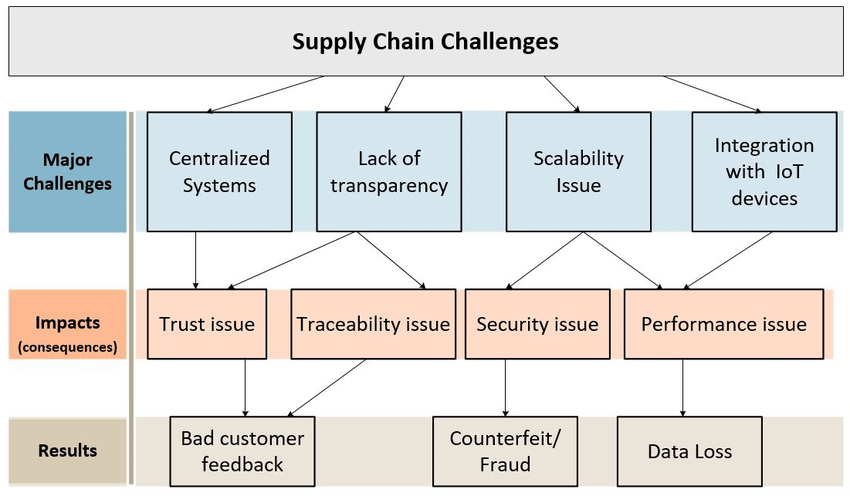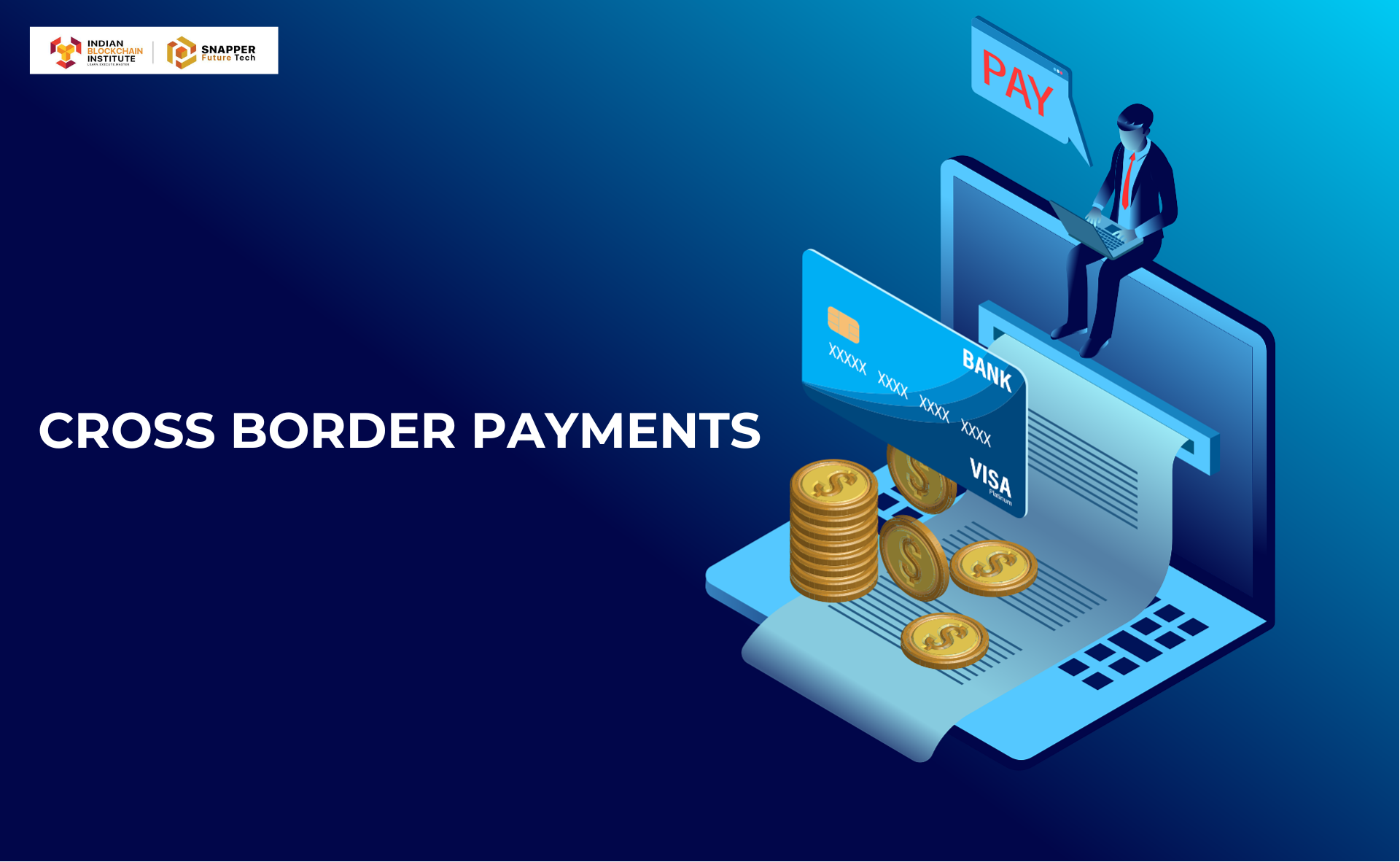The adoption of blockchain technology in various industries, including supply chain management, has been increasing in recent years. One of the primary challenges in managing supply chains is ensuring transparency and traceability of products throughout the supply chain. Blockchain technology can address this issue by enhancing supply chain transparency.
To improve supply chain transparency, blockchain provides a secure and unalterable record of all transactions that take place within the supply chain. The blockchain ledger can store information about the origin, production, and distribution of products, allowing for real-time tracking of products. This enables businesses to identify any issues or inefficiencies in their supply chain and improve their overall performance.
For Example, if a consumer purchases a product and wants to learn about its origin and production process, blockchain technology can provide this information, thereby improving supply chain transparency. Moreover, blockchain can assist in eliminating fraudulent activities such as counterfeiting, as the technology makes it impossible to modify or falsify data.
Why do Supply Chains Need Blockchain Technology?
Supply chains have become increasingly intricate in recent years, evolving from simple systems involving only a few parties to complex, multi-tiered networks involving numerous suppliers, manufacturers, logistics partners, and storage partners. The complexity of modern supply chains presents significant challenges to achieving transparent and efficient operations. One technology that can address these challenges is blockchain, which offers transparency, distribution, and immutability.
Ensuring the legality of raw materials and parts is another major challenge for supply chains, particularly when a supply chain spans multiple geographies and involves numerous partners. It is difficult to trace each process and to identify suppliers that use unethical practices to obtain raw materials. Additionally, counterfeit products can enter the supply chain undetected. To combat these issues, supply chains require a technology that provides traceability of each product back to its origin. Blockchain ledger technology offers this traceability feature, which can help supply chains address these challenges.
What Are the Applications of Blockchain in Supply Chain Networks?
Blockchain technology is a powerful tool that can provide transparency, traceability, and tamper-proof transactions in modern supply chains. With numerous transactions occurring between various partners, blockchain technology is well-suited for supply chain networks and has applications in financial transactions and product tracing.
One of the significant advantages of blockchain technology is product traceability. In the case of a quality issue with canned tuna fish, for example, blockchain technology can enable the manufacturer to trace the product back to the exact shipping boat it came from. Every stage of the product’s movement is added to the blockchain as a transaction, making it immutable and transparent, which reduces the chances of recalls and revenue loss.
Blockchain technology can also facilitate financial flows in the supply chain through cryptocurrency. While not yet widely adopted, businesses have started using blockchain-based technologies like Bitcoin for financial exchanges, which are easy to track, transparent, and don’t require a central authority to monitor.
Smart contracts are another application of blockchain technology in supply chain management. Complex supply chains involve numerous partners and thousands of contracts, each of which can be added to a block in the blockchain transaction. Due to the immutable nature of blockchain transactions, each of these contracts remains tamper-proof, and no party can rewrite or tamper with the contract.
In large supply chains, information flows from one stakeholder to another, and this information may be misplaced or misinterpreted by various partners. To address this issue, blockchain technology can add each information exchange between partners as a block, increasing the transparency and traceability of information exchange and preserving the information flow in an immutable manner.
What are the Benefits of Using Blockchain in Supply Chain?
Supply chain transparency is essential to track transactions between parties. Unlike traditional supply chains, where some transactions may not be visible to third parties, blockchain technology ensures that every transaction is visible to all parties, creating more transparency in the supply chain.
Execution errors in a supply chain can be time-consuming and costly to identify and correct. However, with blockchain technology, all transactions are recorded and cannot be altered, facilitating the detection and correction of execution errors in real-time.
The use of blockchain technology provides increased security in a supply chain by encrypting transactions and securing them with digital signatures, which makes it challenging for anyone to tamper with the transactions, ensuring a secure and trustworthy audit trail.
By digitizing processes and enabling real-time data transfer, blockchain technology can improve the speed and responsiveness of a supply chain. Contracts and transactions are saved in the blockchain, making it easier to access and understand the business logic of the supply chain.
What Are the Technical Challenges When Using Blockchain in Supply Chain?
Blockchain technology is increasingly being adopted in various industries, including supply chain management. However, there are some technical challenges associated with it. Here are some of the challenges and how they can be addressed:
Handling Large Data Sets: Traditional blockchain applications like cryptocurrency have limited data volume, making it easy to validate transactions. However, complex supply chains have thousands of transactions and high data volume. To adapt blockchain to supply chains, it is essential to accurately streamline this massive amount of data.
Managing Transaction Volume: The number of transactions per second in traditional cryptocurrency applications is relatively low compared to supply chain transactions. To fully digitalize complex supply chains, high computation power is required. The speed of the blockchain-based supply chain transaction may be limited by the computation speed of the blockchain network.
Standardizing Blockchain Technology: Due to its recency, there is a lack of blockchain standards in supply chains. Blockchain technology providers need to standardize their solutions so that they can be easily adapted by multiple companies. Standards may include a definition of how two parties can agree on a block before validating it, which encryption method to use, or how to solve disputes in transactions.
Interoperability: Many companies use traditional enterprise resource planning (ERP) systems to manage their transactions. It may not be easy to adapt these systems to use blockchain technology or to completely replace one system before adapting the blockchain-based solution. A certain level of interoperability between the legacy systems and the blockchain-based solution is essential.
Addressing these challenges will make blockchain technology a viable solution for supply chain management. Streamlining data, increasing computation power, standardizing solutions, and ensuring interoperability will help achieve this goal.
Conclusion
In conclusion, blockchain technology can greatly improve supply chain transparency by providing a tamper-proof and secure record of all transactions throughout the supply chain. The use of blockchain technology can help solve challenges like fraud and counterfeiting, and it can also ensure the legality of raw materials and parts. Blockchain technology can also provide benefits like increased transparency, improved security, and increased speed and responsiveness in the supply chain. The technology can be applied in various ways in supply chain networks, such as financial transactions, product tracing, and smart contract execution. However, there are technical challenges associated with using blockchain technology in supply chains, such as handling big data sets and managing transaction volume. Nevertheless, the benefits of using blockchain technology in supply chain management are substantial and continue to drive its adoption in various industries.
Sources:
We Snapper Future Tech have TraceChain –A Blockchain based track ‘n’ trace platform for supply chain. With TraceChain, you will have the fullest visibility into your inventory and all your shipments through the supply chain. TraceChain is a modular and stackable platform for various Industry use cases like Food supply chain, Textile Supply chain and Manufactuing supply chain and Luxury good supply chains. For more detail please visit https://snapperfuturetech.com/tracechain/








Leave a Reply